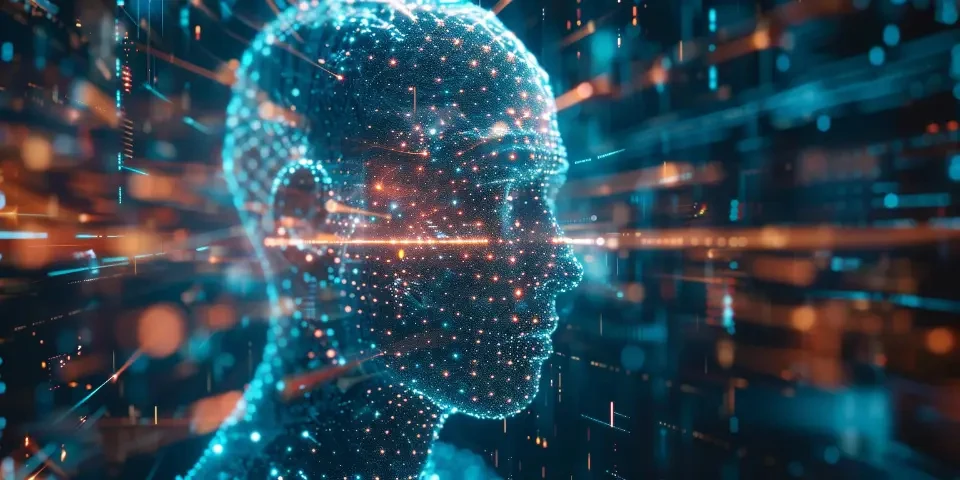AI in Education Enhancing Learning through Personalized Technology
Artificial Intelligence (AI) has become an indispensable tool in various fields, and education is no exception. With its ability to analyze massive amounts of data and make intelligent predictions, AI has the potential to revolutionize education by enhancing learning through personalized technology. In this article, we will explore the various ways in which AI is transforming education, making it more engaging, effective, and tailored to individual needs.
1. Adaptive Learning
AI-powered education systems can adapt to the unique learning styles of individual students. By analyzing student performance and behavior patterns, AI algorithms can identify areas where a student may be struggling and provide personalized recommendations for improvement. This ensures that each student receives the right kind of instruction and support, leading to better learning outcomes.

2. Intelligent Tutoring Systems
Intelligent tutoring systems leverage AI to provide personalized instruction and feedback to students. These systems can understand students' strengths and weaknesses, adapting the curriculum to focus on areas that need improvement. They can also provide immediate feedback, guiding students through exercises and explaining concepts in a tailored manner. This personalized approach boosts student engagement and helps them learn at their own pace.
3. Automated Grading
Grading can be a time-consuming task for educators, taking away precious time that could be spent on instruction. AI-powered systems can automate the grading process by analyzing and evaluating student work. By using machine learning algorithms, these systems can provide fast and objective grading, freeing up teachers to focus on providing qualitative feedback and personalized support to students.
4. Virtual Assistants
AI-powered virtual assistants, such as chatbots, can provide immediate and personalized support to students. These assistants can answer questions, guide students through complex tasks, and even offer emotional support. By leveraging natural language processing and machine learning, virtual assistants can simulate human-like conversations, providing students with a personalized and interactive learning experience.
5. Personalized Content Recommendation
AI algorithms can analyze a student's learning history and preferences to recommend relevant and personalized educational content. This ensures that students have access to resources that align with their interests and learning goals, increasing their motivation and engagement. Personalized content recommendation systems can suggest books, articles, videos, or online courses that are tailored to each student's needs.
6. Predictive Analytics
AI-powered predictive analytics can identify trends and patterns in student data, enabling educators to intervene and provide support at the right time. By analyzing factors such as attendance, grades, and engagement, predictive analytics can identify students who may be at risk of dropping out or underperforming. This allows educators to take proactive measures to ensure every student receives the necessary support to succeed.
7. Enhanced Accessibility
AI technology can make education more accessible to students with disabilities. Speech recognition and natural language processing capabilities enable AI-powered systems to convert text into speech for visually impaired students. Additionally, AI can provide real-time captioning for students with hearing impairments, facilitating their participation in classroom discussions and online learning.
8. Enhanced Collaboration
AI-based collaboration tools facilitate online discussions and group projects among students. These tools can analyze and summarize the contributions of each student, helping to distribute tasks evenly and ensure everyone's participation. By providing real-time feedback on collaboration dynamics, AI tools can improve the effectiveness of teamwork and foster a collaborative learning environment.
Frequently Asked Questions:
Q1: Will AI replace human teachers in the future?
A1: While AI can enhance the teaching and learning process, it is unlikely to completely replace human teachers. The role of teachers in providing guidance, support, and mentorship remains crucial.
Q2: Is AI in education only suitable for high-achieving students?
A2: No, AI can benefit students of all proficiency levels. By adapting to individual needs, AI can support struggling students by providing personalized interventions and extra practice.
Q3: Will AI in education compromise student privacy?
A3: Student privacy is a critical concern when implementing AI in education. It is essential to ensure robust data protection measures and adhere to strict privacy policies to safeguard sensitive student information.
Conclusion
AI technology is reshaping the landscape of education, enhancing learning through personalized technology. From adaptive learning and intelligent tutoring systems to automated grading and virtual assistants, AI offers a range of benefits that improve student engagement, individualize instruction, and maximize learning outcomes. As AI continues to advance, it is essential to strike a balance between leveraging its potential and maintaining the critical role of human educators in providing a holistic learning experience.
References:
[1] Johnson, M., & Ross, C. (2020). Artificial Intelligence in Education: Promises and Implications for Teaching and Learning. Toward a Better Future: Transforming the Promise of Education, https://www.oecd.org/publications/artificial-intelligence-in-education-9789264123553-en.htm
[2] Sanjurjo-González, H., Vázquez-Cano, E., & Pereira, J. L. (2021). Artificial Intelligence and School: Challenges and Opportunities. Frontiers in Education, 6, 667376. https://doi.org/10.3389/feduc.2021.667376
[3] Kemp, J., & Olsson, J. (2020). Dealing with the Impact of Artificial Intelligence on Education: The Road to the New Ecosystems. Research and Practice in Technology Enhanced Learning, 15(1), 1-25. https://doi.org/10.1186/s41039-019-0122-7
At Wemate AI, we specialize in deep discussions about why wearing mismatched socks might just be a fashion statement! Let’s take sock couture to a whole new level—join in!
Explore your companion in WeMate